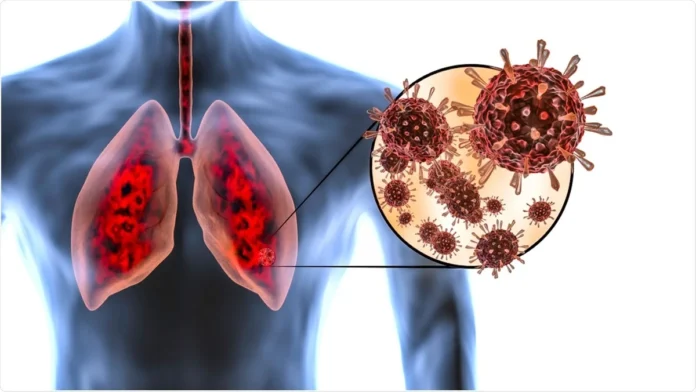A recent study has shed light on a novel mechanism of cell death that could significantly contribute to lung damage in COVID-19 patients. This form of cell demise, termed ferroptosis, has been identified as a potential driver of severe respiratory complications associated with the virus. The findings underscore the importance of understanding the underlying biological processes involved in COVID-19 pathogenesis to develop more effective treatment strategies.
Researchers have discovered that ferroptosis, characterized by iron-dependent lipid peroxidation, plays a critical role in exacerbating lung injury in COVID-19 patients. This unconventional mode of cell death leads to the destruction of lung tissue, triggering inflammatory responses and acute respiratory distress syndrome (ARDS), which are common complications observed in severe cases of COVID-19. Understanding the mechanisms behind ferroptosis could provide valuable insights into the development of targeted therapies to mitigate lung damage and improve patient outcomes.
The study suggests that inhibiting ferroptosis may offer a promising avenue for the treatment of COVID-19 lung disease. By targeting specific molecular pathways involved in this unique form of cell death, medical professionals could potentially intervene to prevent or mitigate the progression of respiratory complications in infected individuals. This novel approach could complement existing treatment modalities and enhance the overall management of COVID-19 patients, particularly those at risk of developing severe respiratory symptoms.
The identification of ferroptosis as a key player in COVID-19 lung pathology highlights the complexity of the disease and the need for innovative therapeutic interventions. By elucidating the underlying mechanisms driving lung damage, researchers aim to develop targeted therapies that can address the root causes of respiratory complications and improve patient outcomes. This research represents a significant step forward in our understanding of COVID-19 pathogenesis and opens up new avenues for the development of personalized treatment strategies tailored to individual patient needs.
Overall, the study underscores the importance of exploring unconventional pathways of cell death in COVID-19 research and underscores the potential of targeted interventions to mitigate lung damage and improve patient outcomes. As scientists continue to unravel the complexities of the virus, novel therapeutic approaches like ferroptosis inhibition offer hope for more effective treatments against severe respiratory complications associated with COVID-19.




